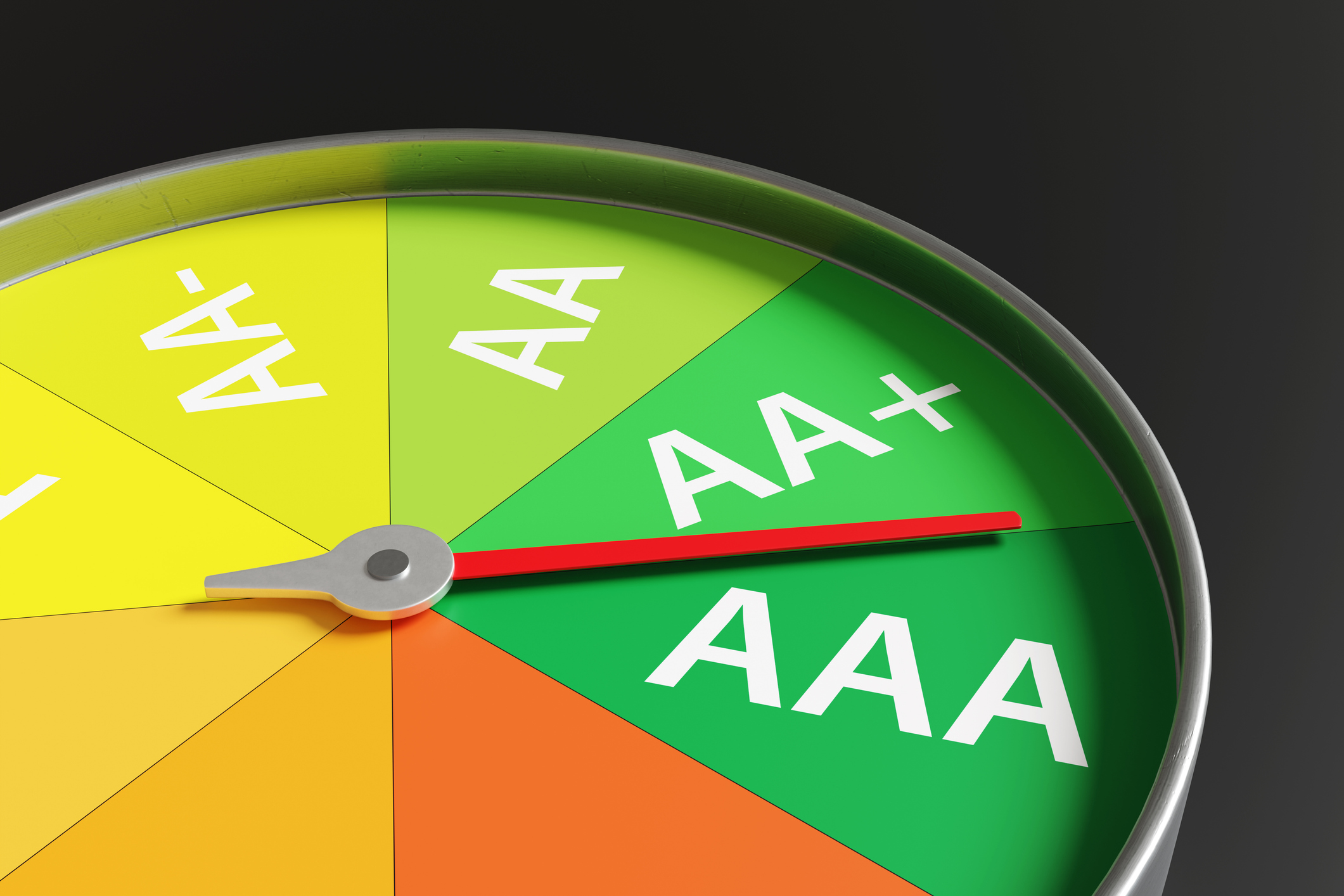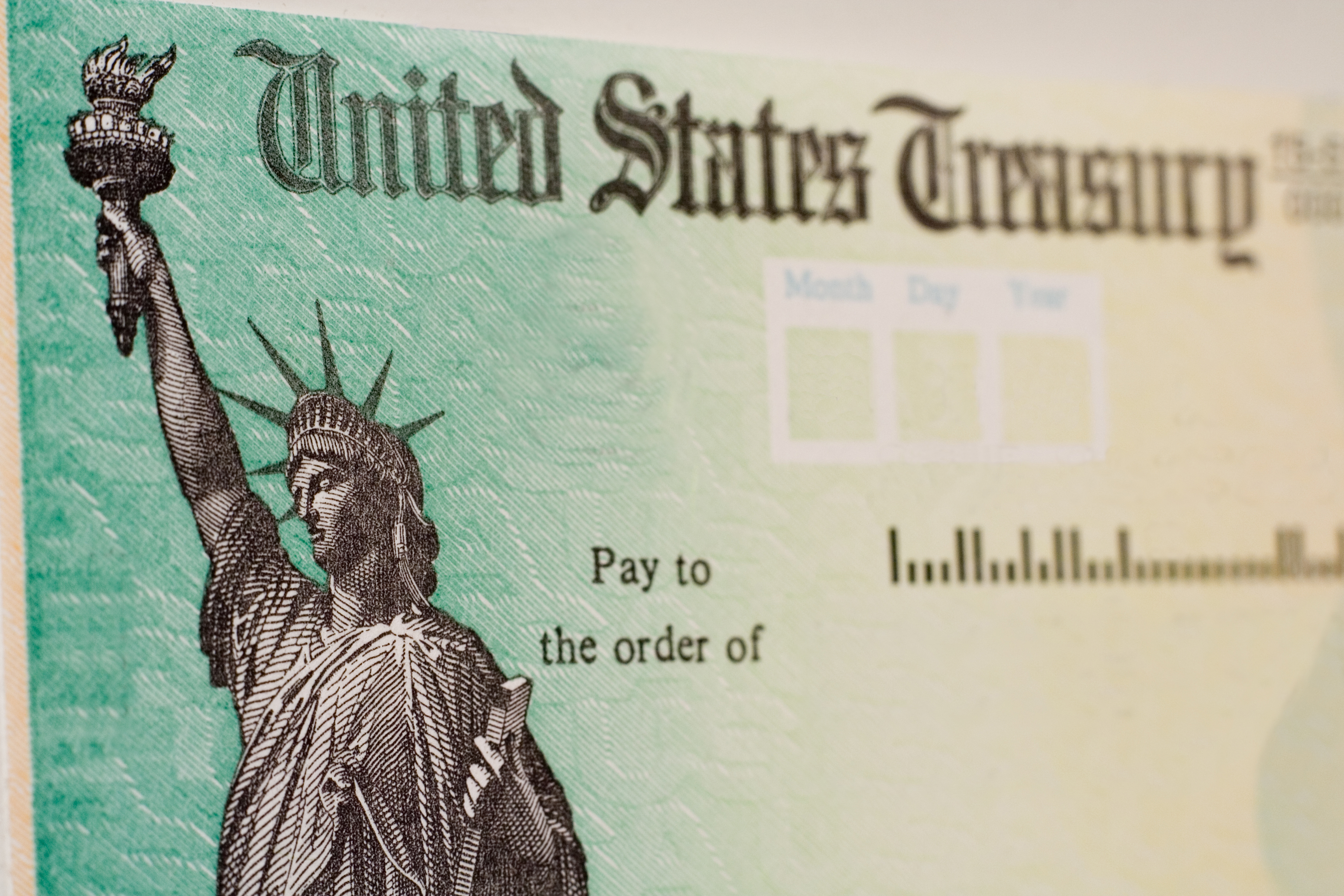5 Reasons to Avoid Buying Bonds Directly
Bond funds provide greater flexibility in an era of high interest-rate risk.

Profit and prosper with the best of Kiplinger's advice on investing, taxes, retirement, personal finance and much more. Delivered daily. Enter your email in the box and click Sign Me Up.
You are now subscribed
Your newsletter sign-up was successful
Want to add more newsletters?

Delivered daily
Kiplinger Today
Profit and prosper with the best of Kiplinger's advice on investing, taxes, retirement, personal finance and much more delivered daily. Smart money moves start here.

Sent five days a week
Kiplinger A Step Ahead
Get practical help to make better financial decisions in your everyday life, from spending to savings on top deals.

Delivered daily
Kiplinger Closing Bell
Get today's biggest financial and investing headlines delivered to your inbox every day the U.S. stock market is open.

Sent twice a week
Kiplinger Adviser Intel
Financial pros across the country share best practices and fresh tactics to preserve and grow your wealth.

Delivered weekly
Kiplinger Tax Tips
Trim your federal and state tax bills with practical tax-planning and tax-cutting strategies.

Sent twice a week
Kiplinger Retirement Tips
Your twice-a-week guide to planning and enjoying a financially secure and richly rewarding retirement

Sent bimonthly.
Kiplinger Adviser Angle
Insights for advisers, wealth managers and other financial professionals.

Sent twice a week
Kiplinger Investing Weekly
Your twice-a-week roundup of promising stocks, funds, companies and industries you should consider, ones you should avoid, and why.

Sent weekly for six weeks
Kiplinger Invest for Retirement
Your step-by-step six-part series on how to invest for retirement, from devising a successful strategy to exactly which investments to choose.
When a new client hires me, he or she often comes with a handful of individual municipal or corporate bonds. I immediately go to my brokerage account and put the bonds out for bid. A day later, my client and I get the sorry news: Almost invariably, buyers offer 3% to 5% less than the bonds are worth. No professional wants to buy the relatively small bond pieces that individual investors own, so no one offers remotely fair prices.
This raises the question of why so many investors buy individual bonds rather than putting their money into bond funds. One major reason is that brokers push individual bonds, telling clients that mutual funds are for small investors, not for them.
In truth, holders of individual bonds aren't exactly complaining — or breaking down brokers' doors to unload their holdings. Instead, they're crowing about the steady income they're earning. They'll continue to get those payouts, they say, regardless of what foolishness erupts in the bond market. And as long as they hold their bonds to maturity, they'll get their entire principal back — except in the unlikely event that a bond issuer defaults.
From just $107.88 $24.99 for Kiplinger Personal Finance
Become a smarter, better informed investor. Subscribe from just $107.88 $24.99, plus get up to 4 Special Issues

Sign up for Kiplinger’s Free Newsletters
Profit and prosper with the best of expert advice on investing, taxes, retirement, personal finance and more - straight to your e-mail.
Profit and prosper with the best of expert advice - straight to your e-mail.
What's more, many investors hold seasoned bonds that they bought years ago. Many of these pay 5% or more on their initial investment. How could a fund, whose price and yield change daily, beat that?
But particularly now, with yields microscopic, owning individual bonds is the wrong thing to do. Why? Because bond yields will rise, probably dramatically, when the Federal Reserve begins backing away from the easy-money policy that has driven interest rates down to record lows. That will pummel bondholders because bond yields and prices move in opposite directions.
Yes, holders of individual bonds will continue to collect their coupons. But when yields rise, inflation normally does, too. The after-inflation return on individual bonds will turn sharply negative.
[EMBED TYPE=POLL ID=22730]
Remember 1980? Those of us with a few gray hairs do. The consumer price index rose 13.5%. A hapless investor who had purchased ten-year Treasury bonds in 1977, when they yielded 7.5%, lost 6% after inflation in 1980 alone.
That after-inflation loss came just one year from the end of a 35-year-long bond bear market. During the 1970s and early 1980s, as yields skyrocketed and prices plunged, bonds came to be known as “certificates of confiscation.”
Given that most bond funds are likely to lose value when rates start to rise, why is a fund any better?
1. You can sell a fund at net asset value five days a week. When bond yields start to spike, I intend to unload my intermediate- and long-term high-quality bond funds.
2. Managers can use derivatives to adjust the sensitivity of their bond funds to changes in yields. One of my favorite funds, Metropolitan West Unconstrained Bond M (symbol MWCRX), should lose little or nothing when rates rise because it's deploying some of its assets to sell Treasuries short — that is, betting that they will fall in price. (The fund is a member of the Kiplinger 25.)
3. A bond fund can take risks that would be imprudent for an individual investor. If you own five or ten individual bonds, you can't afford for even one of them to go bust, so you have to stick to the highest-quality issues. But if you're a fund manager and you own hundreds of issues, it's reasonable to take some risks on at least a portion of them in return for higher yields.
4. Managers have at their disposal analysts who are much better equipped to dissect an individual bond than you are. Come to think of it, fund analysts generally do a better job of assessing a bond's safety than the pathetic bond-rating agencies do.
5. Whatever value is left in the bond market today — and there's precious little — can be found only in debt that few individuals are capable of analyzing on their own. I'm referring to high-yielding junk bonds, emerging-markets bonds and some mortgage securities. For these, you need the diversification and, yes, the professional management that a bond fund provides.
If you already hold individual bonds, I encourage you to get quotes on them. You might be able to get decent prices on Treasuries and some corporate bonds. But if you get quotes on bonds that are 3% to 5% below fair value, you face a tough decision. You can sell at an outrageously low price or cross your fingers, hold the bonds until they mature and hope that inflation hasn't eroded their value substantially. If you own short-term bonds or bonds likely to be called (that is, redeemed early) relatively soon, you should hold them. As for long-term issues, you should probably hold your nose and sell. Prices may never be higher than they are today.
Steven T. Goldberg is an investment adviser in the Washington, D.C. area.
Profit and prosper with the best of Kiplinger's advice on investing, taxes, retirement, personal finance and much more. Delivered daily. Enter your email in the box and click Sign Me Up.

-
 Betting on Super Bowl 2026? New IRS Tax Changes Could Cost You
Betting on Super Bowl 2026? New IRS Tax Changes Could Cost YouTaxable Income When Super Bowl LX hype fades, some fans may be surprised to learn that sports betting tax rules have shifted.
-
 How Much It Costs to Host a Super Bowl Party in 2026
How Much It Costs to Host a Super Bowl Party in 2026Hosting a Super Bowl party in 2026 could cost you. Here's a breakdown of food, drink and entertainment costs — plus ways to save.
-
 3 Reasons to Use a 5-Year CD As You Approach Retirement
3 Reasons to Use a 5-Year CD As You Approach RetirementA five-year CD can help you reach other milestones as you approach retirement.
-
 What Fed Rate Cuts Mean For Fixed-Income Investors
What Fed Rate Cuts Mean For Fixed-Income InvestorsThe Fed's rate-cutting campaign has the fixed-income market set for an encore of Q4 2024.
-
 The Most Tax-Friendly States for Investing in 2025 (Hint: There Are Two)
The Most Tax-Friendly States for Investing in 2025 (Hint: There Are Two)State Taxes Living in one of these places could lower your 2025 investment taxes — especially if you invest in real estate.
-
 The Final Countdown for Retirees with Investment Income
The Final Countdown for Retirees with Investment IncomeRetirement Tax Don’t assume Social Security withholding is enough. Some retirement income may require a quarterly estimated tax payment by the September 15 deadline.
-
 Dividends Are in a Rut
Dividends Are in a RutDividends may be going through a rough patch, but income investors should exercise patience.
-
 Bond Ratings and What They Mean
Bond Ratings and What They Meaninvesting Bond ratings measure the creditworthiness of your bond issuer. Understanding bond ratings can help you limit your risk and maximize your yield.
-
 Bond Basics: Treasuries
Bond Basics: Treasuriesinvesting Understand the different types of U.S. treasuries and how they work.
-
 Bond Basics: Ownership
Bond Basics: Ownershipinvesting Bonds come in a variety of forms, but they all share these basic traits.
-
 Bond Basics: Pick Your Type
Bond Basics: Pick Your Typeinvesting Bonds offer a variety of ways to grow wealth and fortify your portfolio. Learn about the types of bonds and how they work.